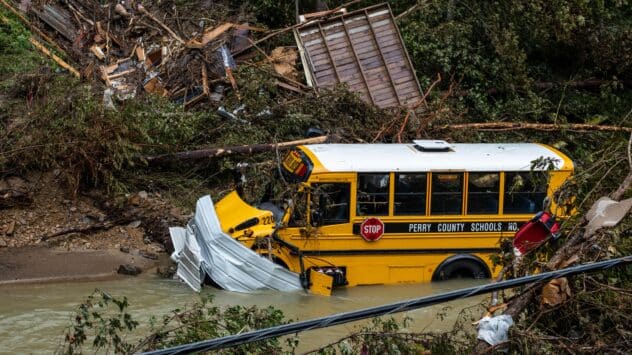
Kentucky Flooding Deaths Linked to Coal Strip Mining
The locations of the 36 drowning deaths during the catastrophic flooding in eastern Kentucky last summer are closely correlated with large-scale coal strip mines, and a local non-profit is calling on the DOI to investigate further.

 233k
233k  41k
41k  Subscribe
Subscribe 



